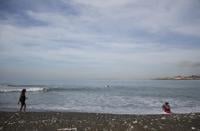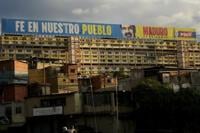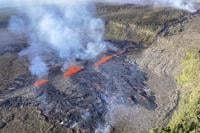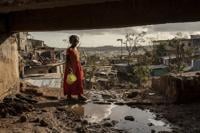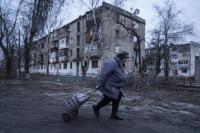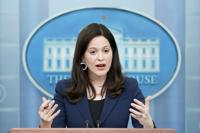SAN JUAN, Puerto Rico (AP) — A U.N. body that regulates deep international waters is preparing to elect its next leader, a crucial position as it faces pressure to either ban, approve or place a moratorium on seabed mining.
The upcoming election comes as the Jamaica-based International Seabed Authority ended on Friday without reaching a consensus on a regulatory framework for deep-sea mining.
The drawn-out debate raises concerns that the authority could receive an application later this year seeking the first deep sea mining exploitation license without having rules or regulations in place.
The Metals Company, a Canadian-based mining company, is largely expected to be the first to apply for such a license.
Mining exploration has been ongoing in the Clarion-Clipperton Fracture Zone, which covers 1.7 million square miles (4.5 million square kilometers) between Hawaii and Mexico. It is occurring at depths ranging from 13,000 to 19,000 feet (4,000 to 6,000 meters).
However, no exploitation licenses have been issued. That could soon change given that some companies and countries are eager to mine the seabed and meet a surging demand for precious metals including cobalt, nickel and copper that are used in green technology.
that minerals in the deep sea take millions of years to form, and that mining them could unleash noise, light and suffocating dust storms.
More than two dozen countries have called for a ban, pause or moratorium on deep-sea mining. Companies including BMW and Samsung SDI also have pledged not to use raw materials from deep-sea mining.
However, proponents of deep-sea mining say it is cheaper and has less of an impact than land mining.
Olav Myklebust, the authority’s council president, told reporters Friday that there are still outstanding issues regarding a proposed regulatory framework, including inspection, compliance and enforcement and how best to determine payments related to exploitation.
He and secretary general Michael Lodge, who is seeking a third term, did not say if exploitation should start despite the absence of rules and regulations.
“It’s the council and member states that decide these issues,” Lodge said.
He is seeking to lead the International Seabed Authority for another four years, but faces a challenge from Leticia Carvalho, a Brazilian oceanographer and former oil-and-gas regulator.
Lodge also has faced allegations of financial irregularities within the authority, which he has rejected.
The authority is scheduled to elect its next leader on Aug. 2.


